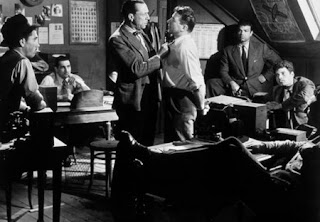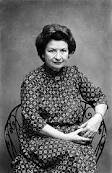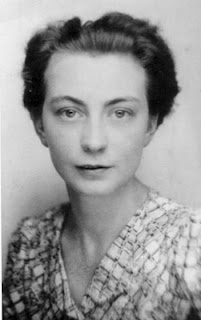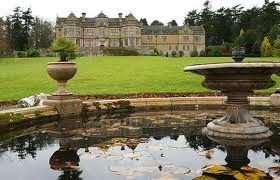Endings and beginnings
I thoroughly enjoyed the first two volumes of Kate Mosse's Languedoc trilogy Labyrinth and Sepulchre; even if I wasn't wholly caught up in the fantasy side of the storyline. And so I came to the final book in the trilogy Citadel.
I loved it. By far the best book in the series for me. Readers who loved the supernatural elements that were present in the two earlier books will probably not be so keen on Citadel, lacking, as it does, the fantasy of the earlier works (although it is still there). Readers who loved Mosse's superb evocation of a time and place will adore this novel set during the Second World War.
Young Sandrine Vidal lives a pleasant life in Carcassonne. France has been occupied, but Vichy France remains "free" and life seems good. Life will change however when Sandrine stumbles across a young man who has been tortured and apparently dumped in the river. As she and her friends endeavour to fight what is wrong, while trying to remain "bonhommes" (never has the term been so accurate) in an increasingly evil world, her life starts to become enmeshed with Audric Baillard, a reminder of earlier eras when the people of the Languedoc were forced to fight to maintain their freedom.
This is principally a novel of the French Resistance, and it's a pretty good one. As ever with Mosse, her historical research is excellent, even if there is the odd anachronism. Two stories run in parallel here, a fascinating glance at a much earlier period of French history (the early 4th century) as the changing face of Christianity impacts on the faith of a generation, and of generations to come; and the twentieth century storyline.
I thoroughly enjoyed the early storyline setting the whole trilogy in context, and setting the seemingly peaceful region of the Languedoc against it's repeatedly violent past. But the Resistance story was excellent, well researched, poignant, and a testament to the bravery of ordinary men and women faced with unbelievable violence. Mosse isn't overly sentimental either, and France's rather darker history of collaboration with Nazism isn't glossed over.
Yes, there are some of the fantasy elements that were present in the earlier novels. And there are a few reminders of Raiders of the Lost Ark, suitably in context here given some of the Nazi leadership's fascination with the occult and occult memorabilia. This however all seems to sit much more naturally within this storyline.
Will you find Citadel impossible to understand if you haven't read the earlier volumes? No, although there are some storylines and characters that make rather more sense if you have. Your enjoyment will be enhanced by reading the earlier novels, and the supernatural elements will make more sense in that context, but Citadel also works as a standalone.
It's a very clever piece of writing forming both a prequel and the definitive end to the series. Thoroughly enjoyable, it may have been over 900 pages long, but it certainly didn't feel like that. The edition I read also had an informative Q&A with the author, further information on the history behind Citadel including a useful bibliography, and a "I want to be there" photographic tour of Carcassonne and surrounding regions. Fantastic read.
I loved it. By far the best book in the series for me. Readers who loved the supernatural elements that were present in the two earlier books will probably not be so keen on Citadel, lacking, as it does, the fantasy of the earlier works (although it is still there). Readers who loved Mosse's superb evocation of a time and place will adore this novel set during the Second World War.
Young Sandrine Vidal lives a pleasant life in Carcassonne. France has been occupied, but Vichy France remains "free" and life seems good. Life will change however when Sandrine stumbles across a young man who has been tortured and apparently dumped in the river. As she and her friends endeavour to fight what is wrong, while trying to remain "bonhommes" (never has the term been so accurate) in an increasingly evil world, her life starts to become enmeshed with Audric Baillard, a reminder of earlier eras when the people of the Languedoc were forced to fight to maintain their freedom.
This is principally a novel of the French Resistance, and it's a pretty good one. As ever with Mosse, her historical research is excellent, even if there is the odd anachronism. Two stories run in parallel here, a fascinating glance at a much earlier period of French history (the early 4th century) as the changing face of Christianity impacts on the faith of a generation, and of generations to come; and the twentieth century storyline.
I thoroughly enjoyed the early storyline setting the whole trilogy in context, and setting the seemingly peaceful region of the Languedoc against it's repeatedly violent past. But the Resistance story was excellent, well researched, poignant, and a testament to the bravery of ordinary men and women faced with unbelievable violence. Mosse isn't overly sentimental either, and France's rather darker history of collaboration with Nazism isn't glossed over.
Yes, there are some of the fantasy elements that were present in the earlier novels. And there are a few reminders of Raiders of the Lost Ark, suitably in context here given some of the Nazi leadership's fascination with the occult and occult memorabilia. This however all seems to sit much more naturally within this storyline.
Will you find Citadel impossible to understand if you haven't read the earlier volumes? No, although there are some storylines and characters that make rather more sense if you have. Your enjoyment will be enhanced by reading the earlier novels, and the supernatural elements will make more sense in that context, but Citadel also works as a standalone.
It's a very clever piece of writing forming both a prequel and the definitive end to the series. Thoroughly enjoyable, it may have been over 900 pages long, but it certainly didn't feel like that. The edition I read also had an informative Q&A with the author, further information on the history behind Citadel including a useful bibliography, and a "I want to be there" photographic tour of Carcassonne and surrounding regions. Fantastic read.










Comments